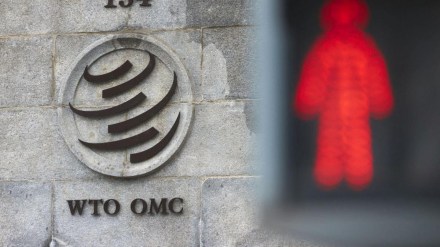The 13th Ministerial Conference (MC 13) of the WTO is scheduled from February 26-29, 2024 at Abu Dhabi. What is at stake in this edition?
Dispute settlement
The most critical issue on the agenda of MC 13 is the restoration of the Appellate Body (AB), envisaged in the WTO Agreement as the second tier of the dispute settlement system. The AB became non-functional about four years ago as a result of targeted action by the US to block nominations for appointment to vacancies due to retirements. Without the AB, the dispute settlement system of the WTO has ceased to be automatic and binding. As a result, it can now neither assure preservation of the rights and obligations of members nor serve to provide security and predictability of the multilateral trading system. There is a virtual return to the GATT era, when negotiations between parties played a major role and power-play prevailed in the settlement of disputes. In order to justify its action, the US launched a severe criticism of the functioning of the AB, but for a long time refused to participate in discussions to address its shortcomings. It was finally agreed at MC 12 that discussions would be held with a view to having ‘a fully and well-functioning dispute settlement system’ by 2024. Discussions have indeed been held and suggestions given on some aspects of dispute settlement procedures but with a few days to go before MC 13, there is no recommendation at all on the AB in the Abu Dhabi package put up to ministers. Now, the US is saying that the mandate is to conclude the talks by the year-end.
Negotiating function
The negotiation function of the WTO, particularly on rule-making, has been sluggish from the outset. With diverse economic situations and differences in stages of development among members, slow progress in concluding trade agreements is inevitable. However, decision-making by consensus, a legacy from the GATT days, makes the task doubly difficult. Many members have been looking at the possibility of making progress by sidestepping consensus and adopting open plurilateral agreements (OPAs), where a subset of members accounting for a substantial proportion of world trade decide to go ahead without waiting for all members to join. Doors remain open for the remaining WTO members to join later; irrespective of their participation, they get all the benefits. Precedents for OPAs have existed since the GATT days and in the WTO, but a group of members led by India and South Africa are firmly opposed to such agreements, as they consider the initiative to be inconsistent with WTO obligations. Meanwhile, there is growing momentum in favour of negotiating OPAs. Agreements have been given a final shape among large groups of members on Services Domestic Regulation and Investment Facilitation for Development. Can the opponents be persuaded at MC13 to show flexibility and support open multilateralism? The draft Abu Dhabi package hints very cautiously at the idea by talking of flexible, constructive, or responsible consensus. If the ministers are agreeable, OPAs can help to revitalise the negotiating function.
Agriculture
At MC11 and MC12, ministers shied away from any substantive outcome on negotiations in agriculture. It appears that MC13 will be no different. Wide differences prevail among major players (the EU, the US, Cairns Group, G33, and G10) on the level of ambition to be aimed at for reduction commitments to be undertaken in negotiations. On the priority issue of public stockholding (PSH)for food security, the US and the Cairns Group maintain that finding a permanent solution can be possible only within the context of domestic support negotiations. The Abu Dhabi text does not reflect any agreed modalities for reduction of support and protection. At MC 13, ministers will do little more than suggest that members try to reach an agreement on modalities by MC 14.
Fisheries
Buoyed by the success in adopting the Agreement on Fisheries Subsidies at MC 12, the WTO members have now engaged in the second phase for negotiating additional disciplines on the types of fisheries subsidies that contribute to overcapacity and overfishing. The draft text seeks to list subsidy practices that would be presumed to contribute to overcapacity or overfishing and is, therefore, prohibited. However, the listed subsidies would be permissible if measures are implemented for the biological sustainability of stocks. A feature of the proposals is S&D treatment, whereby LDCs and developing countries with a share of no more than 0.8% of the global volume of marine capture production would be exempted from the prohibition. Other developing countries would be allowed to maintain prohibited subsidies in their EEZ for a limited period. Importantly, it is proposed to allow them to provide subsidies for resource poor fishermen or livelihood fishing without any time limit but up to a limited distance from the shores. Although negotiations continue on some aspects like the transitional period for which subsidies would be allowed to developing countries other than LDCs, a consensus is expected on all aspects.
Moratorium on customs on electronic transmissions
In 1998, the WTO ministers adopted a declaration which stated that they would continue the current practice of not levying customs duty on electronic transmissions. This comes up for renewal at every MC. This time, a group of industrialised and emerging countries and the ACP countries have called for the moratorium to be continued until the next conference. In its submission, India is silent on the issue and South Africa is alone in proposing its termination. A decision on continuing the moratorium will be welcomed by manufacturers and service industries alike, as in a globalised world, all of them rely on the flow of research, design, and process data and software across international borders.
Addressing key trade issues
Members have proposed that the WTO addresses some key trade issues. Two areas mentioned are trade & industrial policy and trade & environment. Dialogue in the WTO on these and other key issues could facilitate international cooperation and preclude trade friction arising from unilateral action by individual countries.
